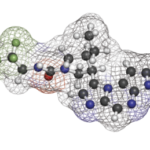 Upadacitinib is an investigational oral selective JAK1 inhibitor currently in Phase 3 clinical trials to treat rheumatoid arthritis (RA), psoriatic arthritis (PsA) and Crohn’s disease.1 It is also being investigated to treat ulcerative colitis, ankylosing spondylitis, atopic dermatitis and giant cell arteritis.
Upadacitinib is an investigational oral selective JAK1 inhibitor currently in Phase 3 clinical trials to treat rheumatoid arthritis (RA), psoriatic arthritis (PsA) and Crohn’s disease.1 It is also being investigated to treat ulcerative colitis, ankylosing spondylitis, atopic dermatitis and giant cell arteritis.
SELET-COMPARE Study
Results from the first phase of the ongoing SELET-COMPARE study have been announced. This 12 week, Phase 3, multicenter, randomized, double-blind study evaluated the efficacy and safety of upadacitinib.1 During the trial, 15 mg once-daily upadacitinib was compared with placebo and adalimumab in adult patients with moderate to severe RA receiving stable background methotrexate with an inadequate response. Patients receiving methotrexate were randomized 2:2:1 to receive 15 mg once-daily upadacitinib (n=651), placebo (n=651) or 40 mg adalimumab given as a subcutaneous injection every other week (n=327).
During this first phase, the study’s primary endpoints were the percentage of patients who achieve ACR20 and clinical remission (based on DAS28[CRP]) at Week 12 compared with placebo-treated patients. Secondary endpoints were a change in the modified total Sharp score; the percentage of patients who achieved ACR50, low disease activity, changes in pain measured by the Patient’s Assessment of Pain (based on VAS); and changes in physical function measured by the Health Assessment Questionnaire-Disability Index (HAQ-DI) for upadacitinib-treated patients compared with both placebo- and adalimumab-treated patients.
Week 12 Results
Upadacitnib-treated patients met both primary endpoints, with 71% achieving an ACR20 response at Week 12, compared with 63% for adalimumab-treated patients and 36% for placebo-treated patients. Twenty-nine percent of upadacitinib-treated patients achieved clinical remission in this timeframe compared with 18% of adalimumab-treated patients and 6% of placebo-treated patients.
All secondary endpoints were also met at Week 12. Significantly more upadacitinib-treated patients (45%) achieved low disease activity compared with only 29% of adalimumab-treated patients and 14% of placebo-treated patients. Additionally, 45% of upadacitinib-treated patients achieved ACR50 compared with 29% of adalimumab-treated patients and 14% of placebo-treated patients. ACR70 responses were 25% for upadacitinib-treated patients, 13% for adalimumab-treated patients and 5% for placebo-treated patients.
Week 26 & Beyond
At Week 26, upadacitinib significantly inhibited radiographic progression compared with placebo (n=593, P<0.001). No new safety signals were identified during the study, and the safety profile was consistent with previously reported results.
The SELET-COMPARE trial is ongoing and includes a 48-week, randomized, double-blind treatment period followed by a long-term extension study of up to five years.
Michele B. Kaufman, PharmD, BCGP, is a freelance medical writer based in New York City and a pharmacist at New York Presbyterian Lower Manhattan Hospital.



